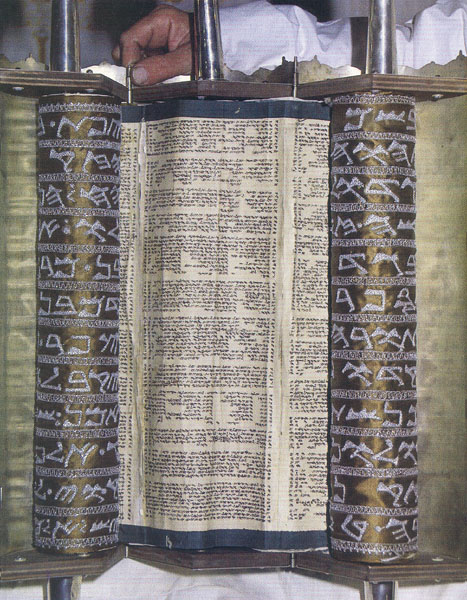Image Details

Photo courtesy of Reinhard Pummer
This lavishly decorated Torah scroll contains a version of the Five Books of Moses known as the Samaritan Pentateuch. For Samaritans, members of a faith that broke off from Judaism in antiquity, this version is both authoritative and sacred; however, it frequently offers readings of the biblical text that differ from parallel passages in the Masoretic Text—the authoritative Jewish text on which modern critical editions of the Hebrew Bible are based. Moreover, some of the textual variants found in the Samaritan Pentateuch match readings found in other ancient biblical manuscripts, such as the Septuagint and the Dead Sea Scrolls.
Author Ronald Hendel believes that the time has come for scholars to produce an eclectic critical edition of the Hebrew Bible—one that combines the best readings from all the ancient manuscripts. While modern scholarly editions of the Hebrew Bible do refer to variant readings in marginal notes, the biblical text itself continues to follow the traditional reading of the Masoretic Text. An eclectic edition, by contrast, would not give preference to the Masoretic Text. Rather, scholars preparing such an edition would first compare and analyze the different readings offered by various biblical manuscripts. They would then determine which of these variants represents the best, or most original, reading of the passage in question. Once identified, the most original reading would be incorporated into the biblical text. According to Hendel, the eclectic edition resulting from this process of analysis and selection would improve upon editions based on the Masoretic Text by bringing the reader closer to the original language and ideas of the Hebrew Bible.
